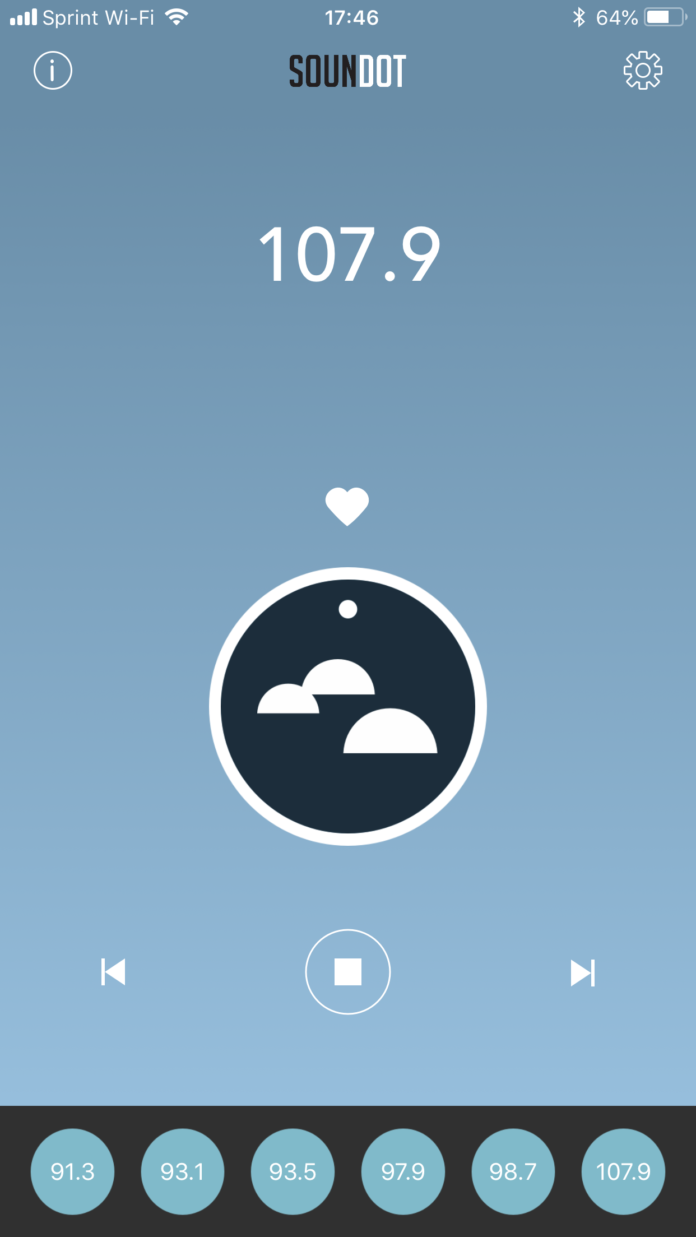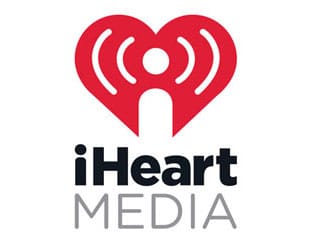Across 2018, one of the most exciting — yet least-talked-about — tech developments for the radio industry gained RBR+TVBR‘s attention by pure happenstance.
RBR+TVBR first learned of the product, the SOUNDOT AF1 headset for iPhones and iPads using the Lightning interface, in April 2018— ahead of that year’s NAB Show in Las Vegas. Later, at the 2018 Radio Show in Orlando, a demo yielded what so many in the radio broadcasting world wanted — in addition to FCC Chairman Ajit Pai: Data-free audio from local radio, on a device everyone seemingly owns, a smartphone.
RBR+TVBR has now learned that the Soundot app is no longer being supported by Apple.
On Dec. 31, with the Soundot app offloaded due to lack of use, RBR+TVBR attempted to access it. It wouldn’t open. A message appeared, noting that the app was no longer supported. As such, the access button for the app was deleted.
Thus ends the second attempt to bring Apple’s iPhone and iPad users FM radio without paying for data usage.
A visit to Amazon.com, a key retailer at the time of the product’s launch, lists the product as unavailable.
An attempt to visit Soundot parent Blackloud‘s website, however, shows the product is still available for purchase, with Apple iTunes as the lone partner it is working with.
Clearly, this is outdated; Blackloud is based in the Los Angeles area and could not be reached prior to RBR+TVBR‘s holiday deadline.
ANOTHER STRUGGLE FOR ‘FREE’ AUDIO
Working with audio design partners Tempo Semiconductor Inc. (TSI) and Silicon Labs (SLAB), Walnut, Calif.-based tech company Blackloud formally brought the SOUNDOT AF1 to market on Sept. 18, 2018. It featured an iOS app and “premium lossless sound quality” for listening to music, watching videos, answering calls, and activating Siri.
But here was the plus for radio broadcasting executives: The SOUNDOT headset also let users directly access compression-free FM radio anywhere in the world via the FM chip embedded in its control box, without requiring internet connectivity or an activated FM chip in the iOS device itself.
At the 2018 Radio Show in Orlando, executives from Blackloud were on hand to promote SOUNDOT; attendees could have received a 10% discount for what was available for $79.89 on Amazon.
RBR+TVBR received a SOUNDOT AF1 for reviewing purposes. Was this radio’s solution for bringing over-the-air radio to the iPhone user? Yes, to a point. No HD Radio reception was available, and audio appeared to be mono. But, the corded antenna pulled in radio signals within a 35-mile radius while in Orlando, and at RBR+TVBR’s Palm Beach County, Fla., headquarters. Use of the device between New York City and Washington, D.C., on an Amtrak Acela train in November 2019 proved useful, with reception of stations easily obtainable within the 60 dBU contour for each FM signal.
There were drawbacks, however, for the Soundot in an era where smart speakers and ear buds dominate audio consumption. Few, if anyone, use corded headphones. And, perhaps Apple saw it as a product that would take away from its own wireless ear bud sales.
Then, there was the lack of promotion of Soundot, and its nearly exclusive sale via the Blackloud website and via Amazon.com. Given its potential in emergency situations such as earthquakes, hurricanes, wildfires and the 2020 derecho that impacted eastern Iowa and Illinois, retailers such as Jewel/Osco, Kroger, Publix, Winn-Dixie, Vons/Albertsons, and CVS/Pharmacy and Walgreens would have been valuable to Soundout distribution and awareness.
The arrival of the Soundot at the 2018 Radio Show came one month before the most ambitious effort to bring data-free FM radio to a smartphone was abandoned, something Emmis Communications founder and CEO Jeff Smulyan today remains disappointed over.
With the release of Emmis’ fiscal Q2 2019 financial results, Smulyan revealed that TagStation LLC, and its NextRadio subsidiary, were each coming to an end.

NextRadio — developed as an App that would turn any smartphone into a data-free FM tuner by unlocking a chip inside an individual headset — was a much-heralded advancement that won the support of the FCC.
Smartphones powered by the Android operating system supported the app.
But, Apple wouldn’t. That ultimately led to its demise.
“The effort to form a consortium for NextRadio and TagStation has not been successful,” Smulyan said in October 2018. It had been rumored that several radio broadcasting companies were looking to acquire NextRadio and/or TagStation, turning it into a shared platform for all FM radio station owners to benefit from.
That effort failed.
Meanwhile, the iHeartRadio app has only grown, as has Entercom’s heavily promoted Radio.com — a major revenue generator for the company. Further, unlimited data plans are more common, and affordable, than ever before.
Smulyan said, “The major learning we had was that, to make this business really what it needed to be, it needed to do data attribution. To do that, we needed much deeper involvement. We tried. We couldn’t get the industry to come together. Everybody unanimously said, ‘We have to have this.’”
But, when it came time to pitch in financially, the response was tepid or nonexistent.
“We just couldn’t get enough support,” Smulyan said.
Of what use, then, are the Blackloud headphones that mirror wired iPhone headphones, but were specifically created for the now-deceased Soundot AF1?
They can be used just like regular headphones, with access to all audio.
Only, the audio available without data use is simply what’s been downloaded to Spotify or iTunes.





